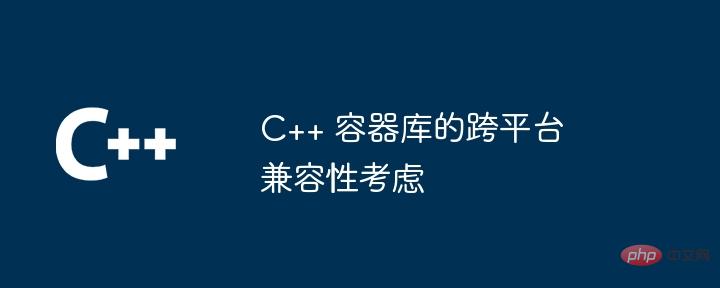
Cross-platform compatibility of C++ container libraries is crucial. Points to consider include ensuring identical container type definitions (e.g. std::vector), checking iterator types, confirming container operation availability, and using a unified memory allocator (e.g. std::allocator).

Cross-platform compatibility considerations for C++ container libraries
When using container libraries in C++, consider cross-platform compatibility to It's important. There may be differences in container library implementations across platforms, which may cause code to behave unexpectedly on different platforms.
Here are some points to consider:
1. Container type definition
Make sure to use the same container type definition on all platforms. For example, on Linux a vector container might be defined as std::vector, while on Windows it might be defined as std::vector<T, Alloc> .
2. Iterator types
Container libraries on different platforms may use different iterator types. Check iterator types and make sure they are consistent across platforms.
3. Availability of container operations
Some container operations may not be available on some platforms. For example, the find method of std::set may not be available on some platforms. Please check the availability of such operations before using them.
4. Memory allocation
Container libraries usually use dynamic memory allocation. Make sure to use the same memory allocator on all platforms. For example, use std::allocator instead of the platform-specific allocator.
Practical Case
The following is a practical case of writing code with cross-platform compatibility in mind:
#include <vector>
int main() {
// 在所有平台上都可用的容器类型
std::vector<int> myVector;
// 检查迭代器类型是否一致
for (auto it = myVector.begin(); it != myVector.end(); it++) {
std::cout << *it << std::endl;
}
// 检查特定容器操作的可用性
if (myVector.find(10) != myVector.end()) {
std::cout << "找到元素 10" << std::endl;
}
return 0;
}This code takes cross-platform compatibility into consideration , because it uses container types available on all platforms, checks the iterator type and checks the availability of specific container operations.
The above is the detailed content of Cross-platform compatibility considerations for C++ container libraries. For more information, please follow other related articles on the PHP Chinese website!




